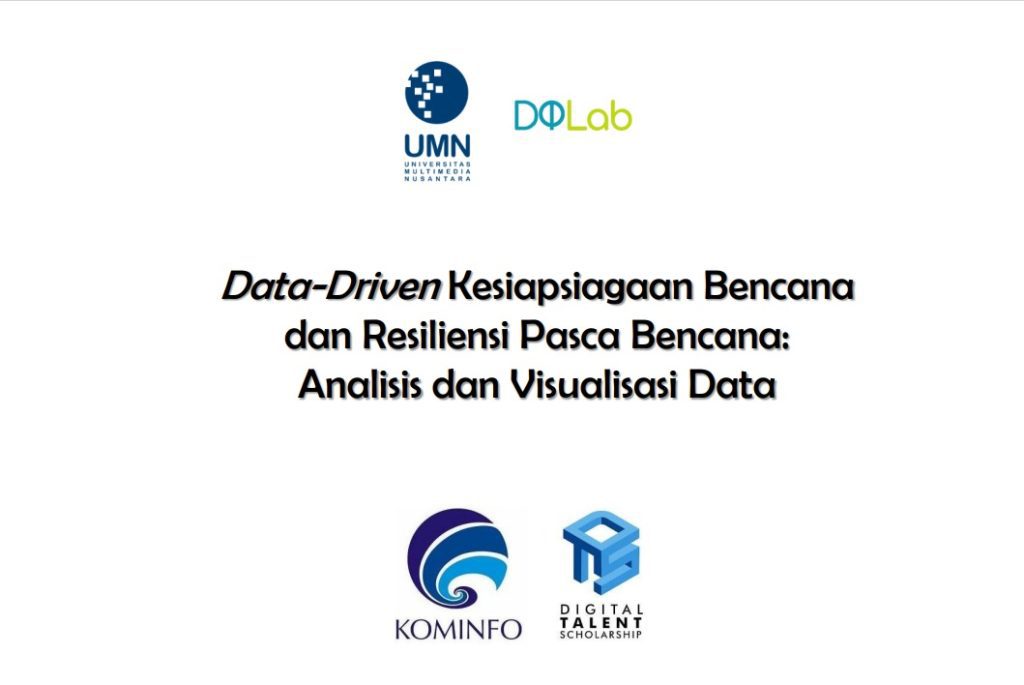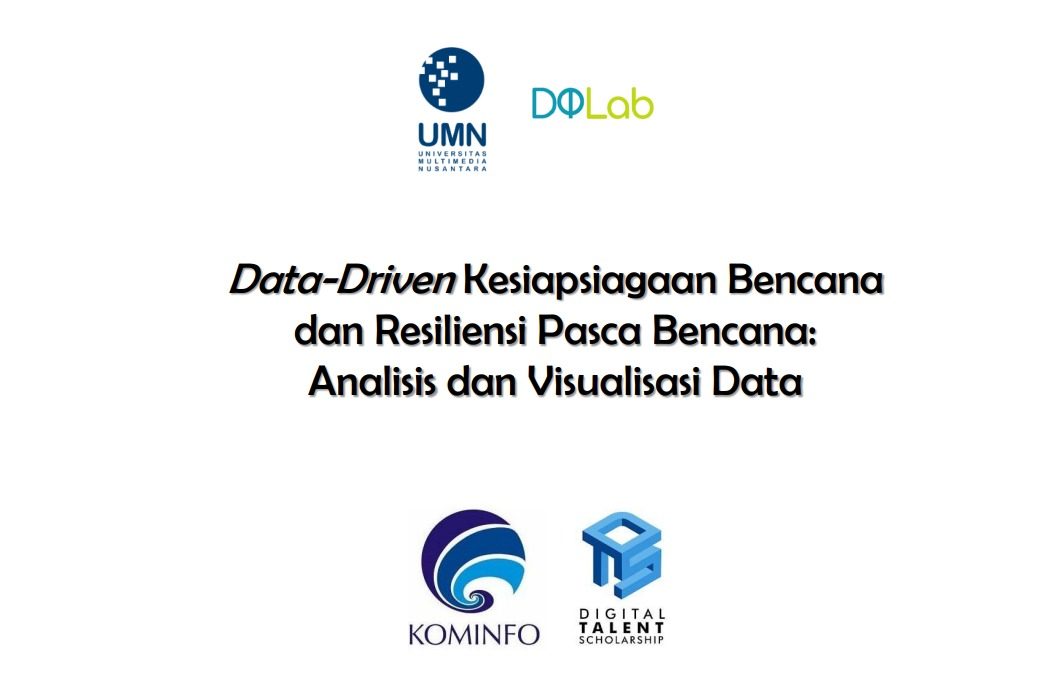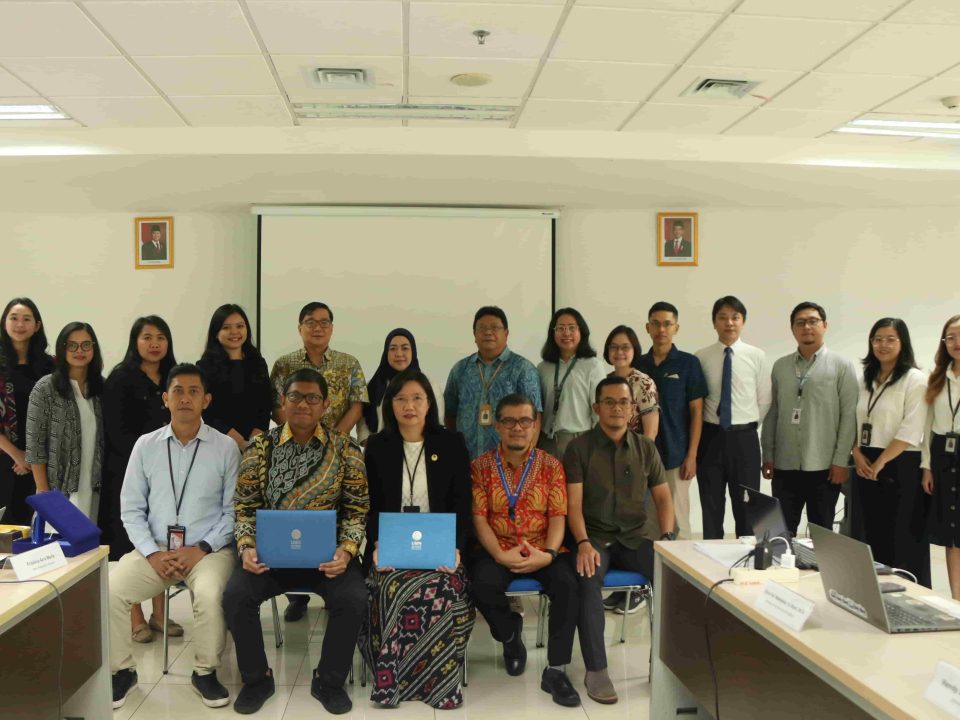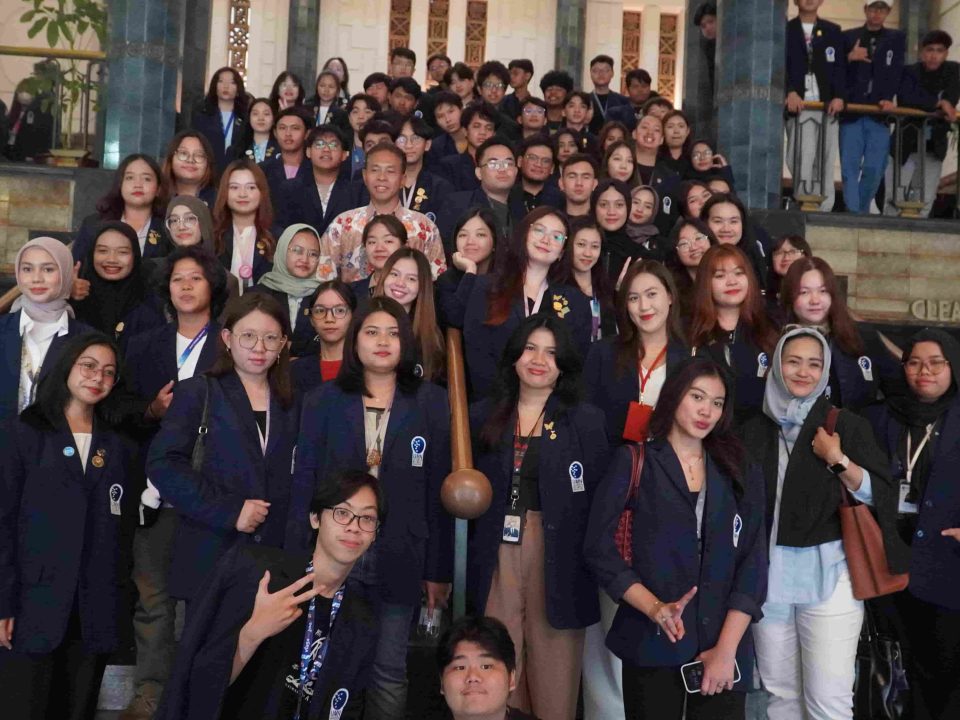
Sharing Journalistic Experience in National Geographic Indonesia’s 19th Anniversary Celebration
April 3, 2024
UMN Welcomes The Return of IISMA 2023 Awardees
April 16, 2024
Training Program initiated by UMN. (Doc. UMN)
TANGERANG – The Faculty of Engineering & Informatics, Multimedia Nusantara University (UMN), together with DQ Lab, with the support of the Ministry of Communication and Information Technology (Kementerian Komunikasi dan Informatika Republik Indonesia/Kominfo) and Digital Talent Scholarship (DTS) launched the Independent Kampus Independent Learning (MBKM/Merdeka Belakar Kampus Merdeka) Data Science Program. This program aims to strengthen post-disaster preparedness and resilience through data analysis and visualization.
Indonesia is a country that has a large potential for natural disasters. Located in the Ring of Fire, Indonesia must always be prepared for possible disasters. The MBKM Data Science program is here to answer this need by utilizing big data to improve community preparedness and resilience.
“Big data continues to grow and impacts many aspects of life, including disaster. Information can help facilitate disaster and post-disaster preparedness,” said Dr. Eng. Niki Prastomo, S.T., M.Sc., Dean of the Faculty of Engineering & Informatics UMN.
Seeing this potential, the Faculty of Engineering & Informatics UMN initiated this training program by submitting a proposal to Kominfo. UMN provides teaching staff in this program, and DQ Lab provides learning modules.
The program is designed to produce a Disaster Information System to help communities understand disaster risks and improve their preparedness. This system will contain various information such as risk maps, infrastructure maps, weather, health maps, and other geographical info.
UMN invites Kominfo to open this program for many people in Indonesia through the MBKM Humanitarian Project. Through this program, students can interact with the outside community, establish cooperation with partners, get training, and help their chosen region build a disaster information system according to their regional needs.
“Hopefully, this program can improve disaster preparedness in various regions in Indonesia,” Dr. Niki said.
Currently, the MBKM Data Science program is attended by 277 students from 62 universities in 18 provinces. The program consists of synchronous training by UMN, asynchronous training by DQ Lab, and guest lectures by CTI Group.
The program lasts for 16 weeks and is currently entering week 6. At this stage, the students are in the process of implementing the program by working with partners and asking them about their needs.
The output of this program can be in the form of mobile applications, web, or other platforms according to the partner’s needs. A total of 15 UMN students are also involved in this program. UMN students are divided into two groups that focus on two areas, namely South Lebak Disaster Mitigation (under GLMS) and Jakarta Flood Management (under LLDikti III).
The MBKM Data Science program is UMN’s real step in contributing to improving disaster preparedness in Indonesia. By combining the power of big data, education, and collaboration, UMN is optimistic that this program can help the community deal with various natural disasters.
by Ivana Auliya | UMN News Service
English translation by Levina Chrestella Theodora
Kuliah di Jakarta untuk jurusan program studi Informatika| Sistem Informasi | Teknik Komputer | Teknik Elektro | Teknik Fisika | Akuntansi | Manajemen| Komunikasi Strategis | Jurnalistik | Desain Komunikasi Visual | Film dan Animasi | Arsitektur | D3 Perhotelan , di Universitas Multimedia Nusantara. www.umn.ac.id





